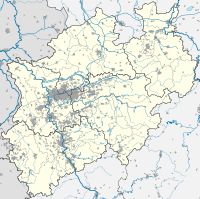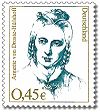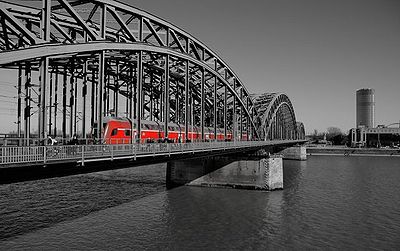- Portal:North Rhine-Westphalia
-
NRW Portal
Portals → Geography → Europe → Germany → North Rhine-Westphalia → nrw.de
- Wikipedia portals:
- Culture
- Geography
- Health
- History
- Mathematics
- Natural sciences
- People
- Philosophy
- Religion
- Society
- Technology
Introduction

North Rhine-Westphalia (German: Nordrhein-Westfalen [ˈnɔɐ̯tʁaɪn vɛstˈfaːlən] (
 listen), usually shortened to NRW, official short form NW) is the westernmost, most populous, and economically most powerful state of Germany. The state was formed in 1946, by merger of two rather distinct territories of the historic Free State of Prussia: the Rhine Province and the Province of Westphalia. The former Free State of Lippe was joined in 1947.
listen), usually shortened to NRW, official short form NW) is the westernmost, most populous, and economically most powerful state of Germany. The state was formed in 1946, by merger of two rather distinct territories of the historic Free State of Prussia: the Rhine Province and the Province of Westphalia. The former Free State of Lippe was joined in 1947.North Rhine-Westphalia is situated "deep in the West" of Germany and includes the plains of the Lower Rhine region and parts of the Central Uplands (Mittelgebirge) up to the gorge of Porta Westfalica. The state comprises a land area of 34,083 km² (13,158 square miles) and shares borders with Belgium in the southwest and the Netherlands in the west and northwest. It has borders with the German states of Lower Saxony to the north and northeast, Rhineland-Palatinate to the south and Hesse to the southeast.
North Rhine Westphalia has a population of approximately 18 million inhabitants, and is centred around the polycentric Rhine-Ruhr metropolitan region, which includes the formerly industrial Ruhr region and the Rhenish cities of Bonn, Cologne (Köln) and Düsseldorf. 30 of the 80 largest cities in Germany are located within North Rhine-Westphalia. The state's capital is Düsseldorf, the state's largest city is Cologne.
As the most urbanised federal state in Germany, North Rhine-Westphalia possesses the country's highest density of cultural, educational and research institutions, the densest transport infrastructure and the highest number of multinational cooperation. North Rhine-Westphalia contributes about 22% to Germany's gross domestic product and accounts for about 28% of the country's foreign direct investments.[1]
Topics
Selected article
Peace of Westphalia denotes the two peace treaties of Osnabrück (15 May 1648) and Münster (24 October 1648) that ended the Thirty Years' War (1618–1648) in the Holy Roman Empire, and the Eighty Years' War (1568–1648) between Spain and the Republic of the Seven United Netherlands. The Peace of Westphalia treaties involved the Holy Roman Emperor, Ferdinand III (Habsburg), the Kingdoms of Spain, France, Sweden, the Dutch Republic and their allies, the Princes of the Holy Roman Empire, and sovereigns of the Free imperial cities.The treaties resulted from the first modern diplomatic congress, thereby initiating a new political order in central Europe, based upon the concept of a sovereign state governed by a sovereign.
Selected biography
 Annette von Droste-Hülshoff (help·info) (born at the family seat castle Burg Hülshoff (now a part of Havixbeck) January 10, 1797 – May 25, 1848) was a 19th century German author, and one of the most important German poets.
Annette von Droste-Hülshoff (help·info) (born at the family seat castle Burg Hülshoff (now a part of Havixbeck) January 10, 1797 – May 25, 1848) was a 19th century German author, and one of the most important German poets.
Related portals
Selected picture
Categories
Associated Wikimedia
Cite error: There are<ref>tags on this page, but the references will not show without a{{Reflist}}template or a<references />tag; see the help page.Categories:- North Rhine-Westphalia
- European portals
- Germany portal
Wikimedia Foundation. 2010.





